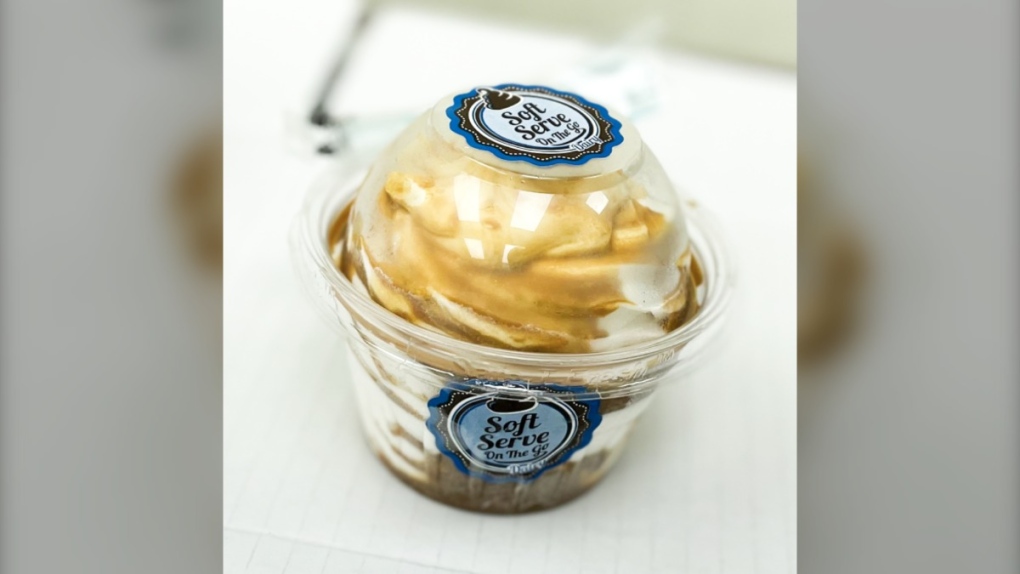
Dessert cup brands recalled in Canada, U.S.
Multiple brands of a dessert cup are being recalled in Canada and the United States over a possible bacteria contamination.
The Canadian Food Inspection Agency (CFIA) posted a food recall warning on Thursday for six brands of “Soft Serve on the Go” due to Listeria monocytogenes.
The affected brands were distributed in Ontario and Quebec and include “Soft Serve on the Go” caramel vanilla ice cream, natural peanut butter ice cream, non-dairy parve vanilla chocolate frozen dessert, “Razzle n’ Dazzle” peanut butter ice cream, strawberry mango sorbet and vanilla chocolate ice cream.
“The Canadian Food Inspection Agency is conducting a food safety investigation, which may lead to the recall of other products,” the notice said.
“The CFIA is verifying that industry is removing recalled products from the marketplace.”
The agency says a recall “in another country” triggered the one in Canada. There have been no reported illnesses involving the products yet in Canada as of the date of the warning.
The U.S. Food and Drug Administration (FDA) published a similar recall notice Aug. 9 on behalf of the company Real Kosher Ice Cream in New York for the same brands and bacteria.
Since the posting of that notice, the FDA says there have been at least two cases of illness in the states of New York and Pennsylvania, with both individuals hospitalized but no deaths reported.
“Food contaminated with Listeria monocytogenes may not look or smell spoiled but can still make you sick,” the CFIA says.
“Symptoms can include vomiting, nausea, persistent fever, muscle aches, severe headache and neck stiffness. Pregnant women, the elderly and people with weakened immune systems are particularly at risk. Although infected pregnant women may experience only mild, flu-like symptoms, the infection can lead to premature delivery, infection of the newborn or even stillbirth. In severe cases of illness, people may die.”
Anyone who believes they may have become sick from eating the affected desserts should contact their health-care provider, the CFIA says. The products also should be thrown out or returned to where they were purchased.
